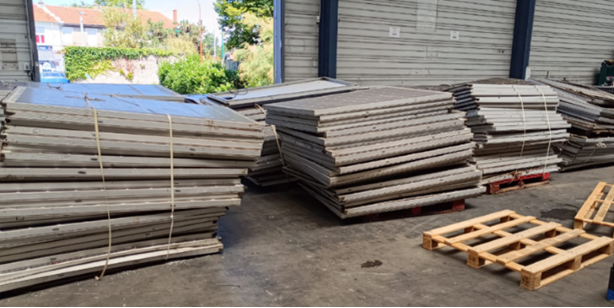A European team develops technologies and processes to show how discarded PV panels and batteries for electric vehicles (EV) can be used in three distributed energy market segments: Agrivoltaic energy, plug-in PV for households and cheap solutions. It will also demonstrate efficient recycling processes for critical raw materials that are recovered from panels and batteries that cannot be reused.
A European team develops technologies and processes to reuse End-of-Life (EOL) solar panels and batteries for electric vehicles (EV) as distributed energy solutions in three market segments.
The project includes demonstration plans for a medium-sized farm in Belgium, which represents agricultural Voltaic energy, a German demonstration of small, semi-mobile PV for households, and a school campus in Brussels, which represents the low-budget or low-income segment. Work is also being done on a solution for the recovery of critical raw materials from PV panels and batteries that cannot be reused.
The four-year project, which started in January 2024, develops an “industrial-driven value chain that includes the collection, logistics, characterization, sorting and reuse” of operational EV batteries and PV panels. It will also demonstrate the efficient recycling, refining and purification of critical raw materials (CRMs) from panels and batteries that cannot be reused.
The work requires optimizing and reducing the costs of processes, such as dismantling, sorting, certifying, testing, reusing and guaranteeing EV batteries. Another research area is the improvement of process steps related to the selection and purification of glass that is recovered from recycling lines for PV panels.
The project involves its modules in the French Environment Agency Soren. According to the project spokesperson, the first designs for the three usage scenarios have already been presented, including value proposition and technical specifications.
The techno-economic modeling of the business cases of the demonstrators has already started and researchers have so far completed the characterization of 122 of the 220 photovoltaic modules.
The team has access to on-site photogrammetry and georeference tools for aerial photos and data acquisition, and performs simulations of the automated testing of PV panels. According to the spokesperson, the results already show benefits compared to manual labor.
Known as Solmate, the full name of the project is Reuse of solar panels and EV batteries for cheap decentralized energy solutions-and effective recycling of critical raw materials from their EOL products. It is in line with the Waste Framework Directive from the European Union, which prioritizes reuse before recycling, and according to the principles of the waste hierarchy, according to the team.
The project has € 6.1 million ($ 6.34 million) in financing from the Horizon initiative of the European Union. It is coordinated by the Belgian Research Institute for Flemish Institution for Technological Research (VITO).
The other partners are the CEA, Soren, Watt4ever and Certisolis based in France, together with Tecnalia, established in Spain, and the KU Leuven, Engie Laborelec, Comet Group, Revolta, Inflights, PNO Innovation and Out of Use. They are accompanied by the Germany -based Suncrafter, the Italy -based Treee and the Luxembourg -based SolarCleano.
This content is protected by copyright and may not be reused. If you want to work with us and reuse part of our content, please contact: editors@pv-magazine.com.


